From the Firing Line: How to Be Director of a Private Company
By John C. Yates, Morris Manning & Martin LLP
I have attended hundreds of Board meetings in my 20 plus year career in representing technology companies. I also serve on the Supervisory Board of two European software companies and I have attended dozens of Executive Sessions of Board of Directors. From these experiences, I’ve accumulated a vast amount of factual and anecdotal information regarding the secrets of Boardroom operations. Here are some of my more practical observations for entrepreneurs and Directors of private technology companies:
1. Focus on the Financials – It’s no mystery that Directors should focus on the financial matters presented at Board meetings. My observation is that there may be too much time spent on these matters, especially for early-stage businesses. There’s no question that public companies must implement and adhere to strict financial and governance controls under Sarbanes-Oxley and recent regulations. But Board members for private companies often focus an inordinate amount of time on irrelevant financial data. Certainly, there are key financial metrics for Directors of a private company to consider:
- Actual financial results compared to the business plan
- Cash reserves and cash burn
- Headcount and revenue per employee
The key financial drivers for your business should be boiled down to one page and presented to the Directors before every meeting.
2. Advice for the Entrepreneur on Financials – There are several practical steps that the entrepreneur can take to focus the Board discussion on financial statements:
- Send your financial information to the Directors at least 72 hours in advance of the meeting.
- Schedule your Board meetings so that quarterly data is included in the Board package (don’t be forced to conduct an “early” Board meeting before this financial information is complete).
- Provide a one-page financial dashboard with the key metrics for the company.
- Use the dashboard as the basis for discussion of financial matters at the Board meeting – and revise the dashboard as necessary.
- Have your accountant available by telephone to consult with the Board (negotiate with the accountant to be available for a brief portion of the meeting, at no charge, to answer Director questions).
The entrepreneur should take steps to avoid a free-for-all discussion on financial information and should focus the discussion on the key metrics of the business.
3. Consult in Advance with the Chairman – The CEO should contact the Chair of the Board at least 10 days prior to each Board meeting. The Chair should prepare the agenda for the meeting, and the CEO can provide valuable input. If the CEO and Chair is the same person, consider having the Chair of the Audit Committee as an independent party to work with the CEO in crafting the Board agenda. Too often, Board meetings are a rehash of the immediately prior meeting. There may be too little thought put into preparing the agenda and focusing on the challenging issues facing the company. In the current environment, these challenging issues for Board consideration may include:
- Executive compensation (especially for private companies where executives’ options and common stock may be underwater)
- Succession planning (as CEOs become more mobile as the economy turns upward)
- Acquisition opportunities
4. Consult with the Officers – This is tricky, but Directors should find ways to open dialogue between Board meetings with officers other than the CEO. CEOs are almost always interested in maintaining control of the communication between officers and outsiders. This is particularly important for public companies where securities disclosure rules impose harsh sanctions for improper disclosure of private information.
The role of the good Director requires communication with a broad group of the officer corp. This issue should be discussed with the CEO on an ongoing basis. The CEO needs to understand that Board members will be contacting officers for confidential discussions regarding business and financial matters.
Many CEOs may object to this process. However, frequent and open communication with officers will allow the Board to unearth problems earlier than has been the case given past corporate scandals. Of course, the Directors will need to exercise prudence regarding these communications and the confidentiality of these discussions.
5. Focus on the Pipeline – I’m a big supporter of the Directors spending time in Board meetings on the sales pipeline and sales process. This is akin to a group of doctors studying the vital signs of their patients. The equation is simple – without revenue growth, the rest is all academic.
A review of the pipeline also forces Directors to step up to the plate and provide value-added assistance. An often ignored benefit to be provided by outside Directors is their assistance in farming the pipeline for new customer opportunities. For Directors, don’t let your entrepreneurs off the hook – make sure they present the pipeline for review at each Board meeting.
6. Plan for a Strategic Discussion – A strategy discussion is appropriate with your Board on an annual basis. I’ve participated in many strategy discussions that have been extraordinary in their value to business growth. The common attributes of these meetings include:
- Thorough pre-planning – The CEO should work closely with a designated member of the Board to plan the strategic session. Too frequently, the sessions become disorganized for lack of advance planning.
- Consider adding a consultant – The right consultant can be a valuable contributor to an organized strategic planning session.
- Focus only on strategy – The planning session should be centered on strategic development and nothing else. Don’t let the discussion be diverted to tactical matters.
- Spend at least half the day – The strategic planning discussion should take at least 3-5 hours of time. Half of this time will be educational for the outside Directors who will need to be updated on business developments. The remainder can be lead by a consultant presenting an assessment of the market and business strategy.
- Do your homework – Make sure to prepare in advance and complete a briefing book for the Board. Send Directors both hard copy and email versions of the materials. (You’d be surprised by how important this is – many Directors experience email problems, especially those who are retired.)
Corporate governance is changing and so is the role of the outside Director. By taking some simple but important steps, Directors can increase their effectiveness and may be successful in reducing the likelihood of management surprises occurring that adversely impact the business.
John C. Yates Chairs the Technology Group of the law firm Morris, Manning & Martin, LLP, which has offices in Atlanta, Charlotte and Washington, D.C. He can be reached at jcy@mmmlaw.com and (404) 504-5444.
This article is presented for educational and information purposes and is not intended to constitute legal advice.

























